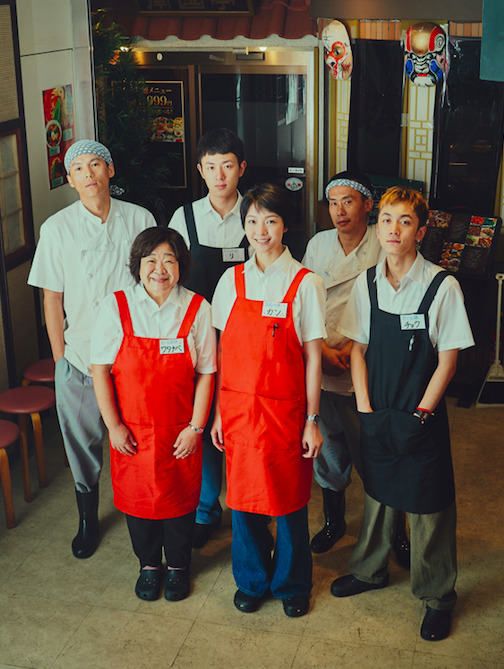
The New York Asian Film Festival returns for its 20th edition from July 15th until the 31st to increase exposure of Asian representation on screen. The kermesse will provide opportunities for audiences of all communities to experience the diversity of this culture and establish connections between East and West.
One of the films in the line-up that effectively sheds a light on the relationship between two prominent Asian countries is Before Next Spring, directed by Gen Li. This Chinese picture is set in Japan and is an effective cross-border drama, portraying the lives of immigrants from the realm of Cathay who have settled in the Land of the Rising Sun.
China and Japan have engaged in political rivalry for centuries, as attested by the First Sino-Japanese War that was fought between the two countries in 1894-95 over influence in Korea, and the Second Sino-Japanese War, that stemmed out in the wider Pacific Theatre of the Second World War. Today, bilateral agreements between the two countries allow Japan and China to have close economic relations and cultural exchanges. However due to the emergence of historical grievances and geopolitical disagreements the Japanese and Chinese people can still be hostile to one another. This is what is subtly portrayed in Before Next Spring.
The narrative unfolds over the course of a year, and all its characters revolve around a Chinese restaurant called Nankokute, located in a Tokyo suburb. The Chinese expat student Xiaoli Li (Chengze Xie) is hired there as a waiter, having been introduced by classmate Qiu Qiu (Qiu Tian) who is friendly with waiter Qingmu Zhao (Chao Niu), who boasts to be half Chinese half Japanese. Li becomes friendly with chef Wan Lao (Yongzhong Chen) and manager Wei Guan (Xi Qi). The latter discovers to have a medical condition while she is having her application for permanent residency rejected. Wei is further having trouble with her boyfriend Song Xiao (Ning Feng Song), who is an undocumented immigrant.

All the vicissitudes of these outsiders, in different ways, depict the struggles of dealing with cultural assimilation and integration into mainstream Japanese society. The way this theme arises throughout the film epitomises the idea that ‘home is where the heart is.’ All characters seem rather lost and uprooted, however the place they can call home is the Nankokute restaurant. Human connections are forged here, regardless of an antagonistic history.
The cinematography by Hung-i Yao creates a retro allure that instills a timeless quality to the film, that is evidently set in our days but could easily come across as a tale of another era. Another effective touch is provided by the score of rock band Hualun that adds a subdued charm to Gen Li’s film. Also the editing by Matthieu Laclau and Tsai Yann-Shan allows the storytelling to run smoothly, as the various storylines proceed on their own and intersect with each other, creating a powerful ensemble piece that brings into prominence a shared state of being.
Before Next Spring, provides a balanced analysis of the relationship between China and Japan, that transcends the particular and can be universally applied to opposing countries. The story could easily adapt to a tale of immigration in the United States, where European immigrants stumble upon policies and cultural prejudices, as the locals interact with them with circumspection. The film grants a considerate look at people who maintain realistic expectations as they search for better opportunities, away from their place of origin. The Asian characters stare at the iconic Tokyo Tower with mixed feelings: disillusion and hope, as well as the resilience in accepting whatever circumstance is to come. They admire the Japanese landmark at a distance, just as they would stare at the Statue of Liberty had they landed in the Western hemisphere. The communications and observation tower in the Minato neighbourhood serves as a profound allegory for these immigrants who long to establish a connection with the country they’ve chosen and await to see if this nation requites them.
Final Grade: B+
Check out more of Chiara’s articles.
Images provided by Huace Film & TV (Tianjin) Co., Ltd.

